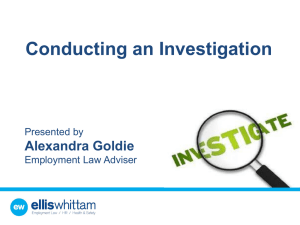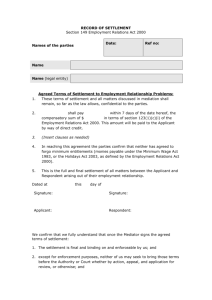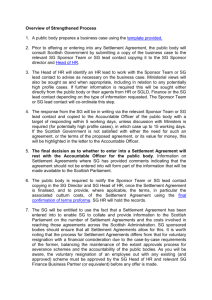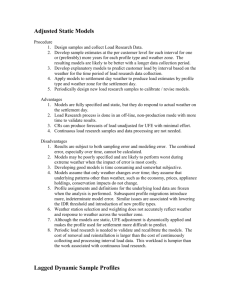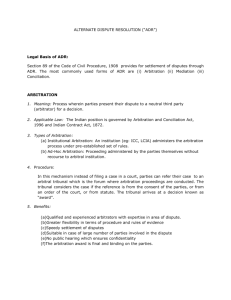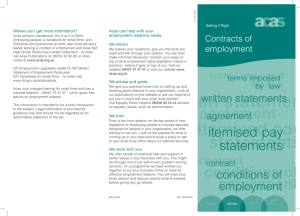Avoiding Employment Tribunal claims
advertisement
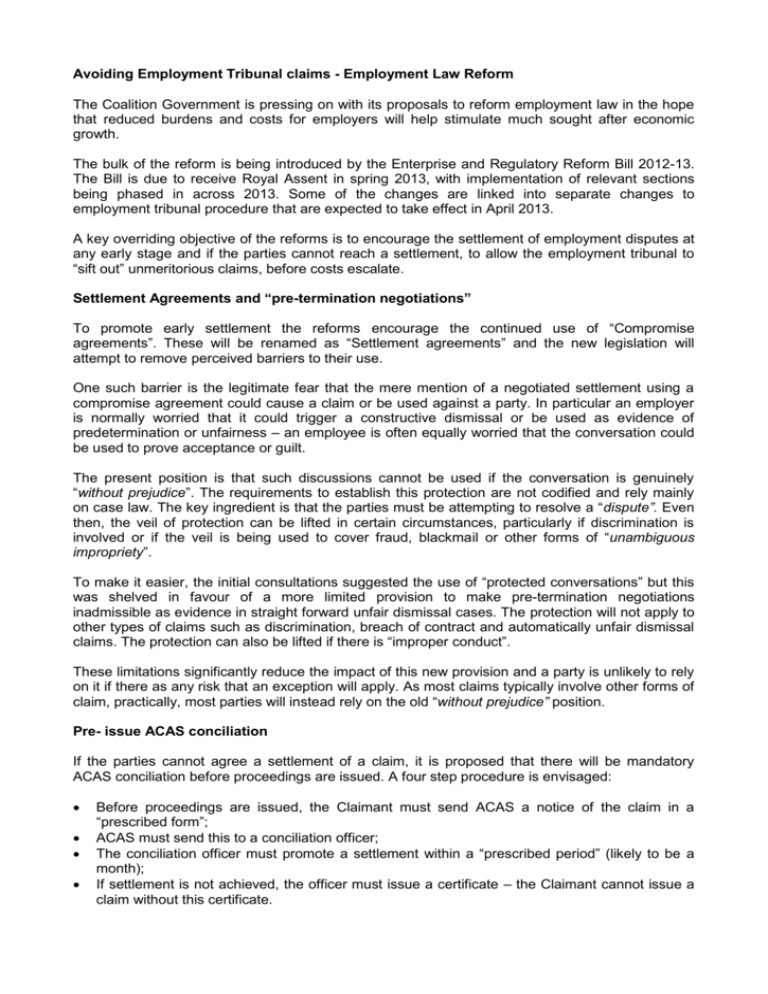
Avoiding Employment Tribunal claims - Employment Law Reform The Coalition Government is pressing on with its proposals to reform employment law in the hope that reduced burdens and costs for employers will help stimulate much sought after economic growth. The bulk of the reform is being introduced by the Enterprise and Regulatory Reform Bill 2012-13. The Bill is due to receive Royal Assent in spring 2013, with implementation of relevant sections being phased in across 2013. Some of the changes are linked into separate changes to employment tribunal procedure that are expected to take effect in April 2013. A key overriding objective of the reforms is to encourage the settlement of employment disputes at any early stage and if the parties cannot reach a settlement, to allow the employment tribunal to “sift out” unmeritorious claims, before costs escalate. Settlement Agreements and “pre-termination negotiations” To promote early settlement the reforms encourage the continued use of “Compromise agreements”. These will be renamed as “Settlement agreements” and the new legislation will attempt to remove perceived barriers to their use. One such barrier is the legitimate fear that the mere mention of a negotiated settlement using a compromise agreement could cause a claim or be used against a party. In particular an employer is normally worried that it could trigger a constructive dismissal or be used as evidence of predetermination or unfairness – an employee is often equally worried that the conversation could be used to prove acceptance or guilt. The present position is that such discussions cannot be used if the conversation is genuinely “without prejudice”. The requirements to establish this protection are not codified and rely mainly on case law. The key ingredient is that the parties must be attempting to resolve a “dispute”. Even then, the veil of protection can be lifted in certain circumstances, particularly if discrimination is involved or if the veil is being used to cover fraud, blackmail or other forms of “unambiguous impropriety”. To make it easier, the initial consultations suggested the use of “protected conversations” but this was shelved in favour of a more limited provision to make pre-termination negotiations inadmissible as evidence in straight forward unfair dismissal cases. The protection will not apply to other types of claims such as discrimination, breach of contract and automatically unfair dismissal claims. The protection can also be lifted if there is “improper conduct”. These limitations significantly reduce the impact of this new provision and a party is unlikely to rely on it if there as any risk that an exception will apply. As most claims typically involve other forms of claim, practically, most parties will instead rely on the old “without prejudice” position. Pre- issue ACAS conciliation If the parties cannot agree a settlement of a claim, it is proposed that there will be mandatory ACAS conciliation before proceedings are issued. A four step procedure is envisaged: Before proceedings are issued, the Claimant must send ACAS a notice of the claim in a “prescribed form”; ACAS must send this to a conciliation officer; The conciliation officer must promote a settlement within a “prescribed period” (likely to be a month); If settlement is not achieved, the officer must issue a certificate – the Claimant cannot issue a claim without this certificate. If followed, this would extend the time limit for lodging a claim. Again, there are exceptions that apply. This “step” approach has echoes of the old “statutory dismissal and grievance” procedures which were repealed because of the complexity and satellite litigation they caused.

